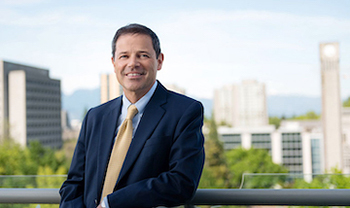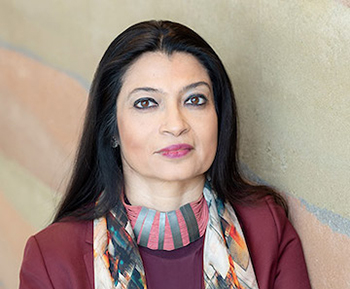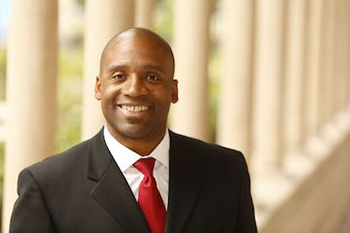
Returning to university or stepping onto a campus for the first time as a student can be a life-changing experience. Anticipation, excitement, and usually a fair degree of nervousness, are a potent mix especially that for many students, the beginning of their studies also marks the first time they’ve lived outside their family home.
This fall term though is unlike any other in the history of The University of British Columbia, indeed in the history of universities around the world.
Courses this fall are primarily online to ensure the health and safety of our campus community during COVID-19.
So what does this mean for the learning environment and the student experience?
There won’t be throngs of students rushing from class to class, or packed first-year lecture halls. Campuses will be quieter than anyone, especially students, faculty and staff, would like.

Andrew Szeri
Many UBC students from across Canada and around the world will be opening their computers to access courses online. The shift to online has been a monumental task for faculty and staff. They have worked diligently for months to provide more than 3,000 courses taught in virtual classrooms in a whole new way, says UBC Vancouver Provost Andrew Szeri.
“This work involves many faculty, staff and students coming together to reimagine and adapt course delivery, to rethink how students and faculty interact with one another in the absence of an in-person classroom setting and how to reconsider traditional assessments of learning outcomes,” says Szeri.
“Creativity, equity and flexibility have been and continue to be foundations of this process. The results, thanks to our dedicated faculty and staff, are truly impressive.”
“One remarkable development has been the collaboration between students and faculty in delivering the curriculum. We have created new internships, training programs and peer tutoring initiatives which will bring the learners and teachers together in exciting new ways. The feedback from both faculty and students is quite inspiring”, says Ananya Mukherjee Reed, provost of UBC Okanagan.

Ananya Mukherjee Reed
This fall, many students will be able to access their courses in their regular time slots, with a mix of asynchronous and recorded elements if time-zones and schedules (and just everyday life) don’t allow it. This provides more flexibility for learners managing a variety of other demands on their time. They can maintain employment if they are able and choose to, help their families, and balance personal responsibilities.
Faculty and staff are designing new models for student and faculty interaction. There are new platforms available for students to connect with each other, new online spaces where they can meet and talk about their courses, help each other and develop friendships.
Final exams will also be different in many cases. Without physical classroom space approaches to assessment will be more varied. Many faculty members have shifted from traditional exams to project-based demonstrations of what students have learned, or open-book exams. Again, this provides students with agency and flexibility and allows for an exceptional level of creativity. Students, their parents and those who want to learn more about how UBC is approaching designing, building and delivering these online courses may wish to consult the guiding principles and practical advice, developed by faculty and staff earlier this summer. They are available at keepteaching.ubc.ca.
All our student services, such as advising, counselling, the Student Learning Hub, the Supplemental Learning program and the Centre for Scholarly Communication, have all gone online. Our Jump Start program will be delivered in two sessions to serve two different time zones, says Mukherjee Reed.

Ainsley Carry
University is a time to grow intellectually, to see possible futures sometimes never previously considered, to meet friends and mentors who will have lifelong impacts, says Ainsley Carry, vice-president, students.
“We encourage students who aren’t on campus this fall to take advantage of the platforms and opportunities available to them to develop those relationships, be they through online clubs and societies, class groups or other means.”
“When it comes to the student experience, UBC is more than our physical campuses,” says Carry. “When students are admitted to UBC they are admitted to a community that cares for them and is committed to supporting them.”
Students who need help can access:
- Student health supports: students.ok.ubc.ca/health-wellness or students.ubc.ca/health/student-health-service
- Mental health supports: students.ok.ubc.ca/health-wellness or students.ubc.ca/health/counselling-services
- Career counselling: students.ok.ubc.ca/career-experience or students.ubc.ca/career/career-resources
- Emergency financial aid: students.ok.ubc.ca/courses-money-enrolment/finances/financial-support or students.ubc.ca/enrolment/finances/funding-studies/financial-support-options
New and returning students should take the time to review helpful advice on keeplearning.ubc.ca and students.ok.ubc.ca/new-to-ubc.
Through those sites they can learn about campus life from their homes, and how to take on all of the new and unique challenges that come with a university education, especially now when the look and feel of UBC has changed.
“Above all, this pandemic will not last forever. We will come back to our campuses and resume in-person classes when possible as our understanding of the pandemic continues to evolve, and when it is safe to do so. Of course, there will changes as we respond to health imperatives, but our combined commitment to ensuring the benefits of attending UBC in person or virtually remains as strong as ever,” says Carry.